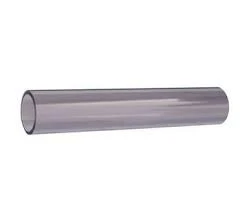டிசம்பர் . 22, 2024 04:35 Back to list
hdpe plate
Understanding HDPE Plates Properties, Uses, and Benefits
High-Density Polyethylene (HDPE) is a thermoplastic polymer that is widely used across various industries due to its exceptional strength-to-density ratio and durability. HDPE plates, made from this versatile material, have become essential components in numerous applications ranging from construction to packaging. This article explores the properties, uses, and benefits of HDPE plates, showcasing why they are a preferred choice in many sectors.
Properties of HDPE Plates
One of the key characteristics of HDPE is its high density, which makes it more robust than other types of polyethylene. HDPE plates are resistant to impact and can withstand high levels of stress, making them ideal for demanding environments. Their melting point typically reaches around 120-180°C (248-356°F), allowing them to maintain form and function under varying temperatures.
Moreover, HDPE is known for its excellent chemical resistance. It does not react with many substances, which makes HDPE plates suitable for use in environments where they may come into contact with acids, bases, or solvents. The non-porous nature of HDPE also means it resists water and moisture absorption, further enhancing its durability and longevity.
Another beneficial property of HDPE plates is their UV resistance. This quality allows them to be used outdoors without the risk of degradation over time. Additionally, HDPE has a relatively low coefficient of friction, making it an excellent choice for applications that involve sliding or rolling components.
Applications of HDPE Plates
The versatility of HDPE plates means they find uses across a wide range of industries. In construction, they are often used as protective barriers, flooring, and even in the manufacturing of various structural components due to their strength. The food industry also utilizes HDPE plates since they can be easily sanitized and are safe for food contact, making them ideal for cutting boards and food storage containers.
In the field of manufacturing, HDPE sheets are commonly used for creating jigs, fixtures, and custom parts. Their ease of fabrication means businesses can cut, weld, and shape HDPE plates according to their specific needs. Additionally, HDPE is utilized in the plumbing industry for creating piping systems due to its excellent chemical resistance and durability.
hdpe plate

Waste management solutions also benefit from HDPE plates, as they are robust enough to be used in waste containers and recycling bins. The material’s resistance to corrosion and decay ensures that these products have a long lifecycle, contributing to more sustainable waste management practices.
Benefits of Using HDPE Plates
Choosing HDPE plates over other materials comes with several advantages. Firstly, their durability translates into long-term cost savings. While HDPE plates may have a higher upfront cost compared to some traditional materials, their lifespan and minimal maintenance requirements make them a more economical choice in the long run.
Another significant benefit is their lightweight nature. HDPE plates are much lighter than metals or other rigid materials, making them easier to handle, transport, and install. This feature is especially important in industries where equipment mobility is a priority.
From an environmental standpoint, HDPE plates are an attractive option. The material is recyclable, helping to reduce landfill waste and promote sustainability. Many manufacturers produce HDPE from post-consumer materials, further benefiting ecological conservation efforts.
Lastly, the ease of customization offered by HDPE plates cannot be overlooked. Businesses can easily machine, cut, and fabricate the material to fit their unique requirements, resulting in tailored solutions that enhance productivity and efficiency.
Conclusion
In summary, HDPE plates are a robust and versatile material that serves a multitude of functions across various industries. Their impressive properties—ranging from chemical resistance to lightweight durability—make them a preferred choice for many applications. As industries continue to evolve, the demand for HDPE plates is likely to grow, underscoring the importance of this invaluable material in shaping our modern world. Whether in construction, manufacturing, or environmental management, the benefits of HDPE plates are clear, paving the way for innovative solutions and sustainable practices.
-
Durable PP Rigid Sheet: Lightweight, Chemical Resistant Solutions
NewsAug.21,2025
-
PVC Grey Sheet for Extraction: Chemical Resistant & Durable
NewsAug.19,2025
-
Durable PVC Pipe Fittings for Plumbing & Irrigation Needs
NewsAug.18,2025
-
HDPE Steel Belt Reinforced Spiral Corrugated Pipe | High Strength
NewsAug.17,2025
-
HDPE Pipe Fittings: Durable, Leak-Proof Solutions
NewsAug.16,2025
-
Premium CPVC Sheet: High-Temp & Chemical Resistant Solutions
NewsAug.15,2025

